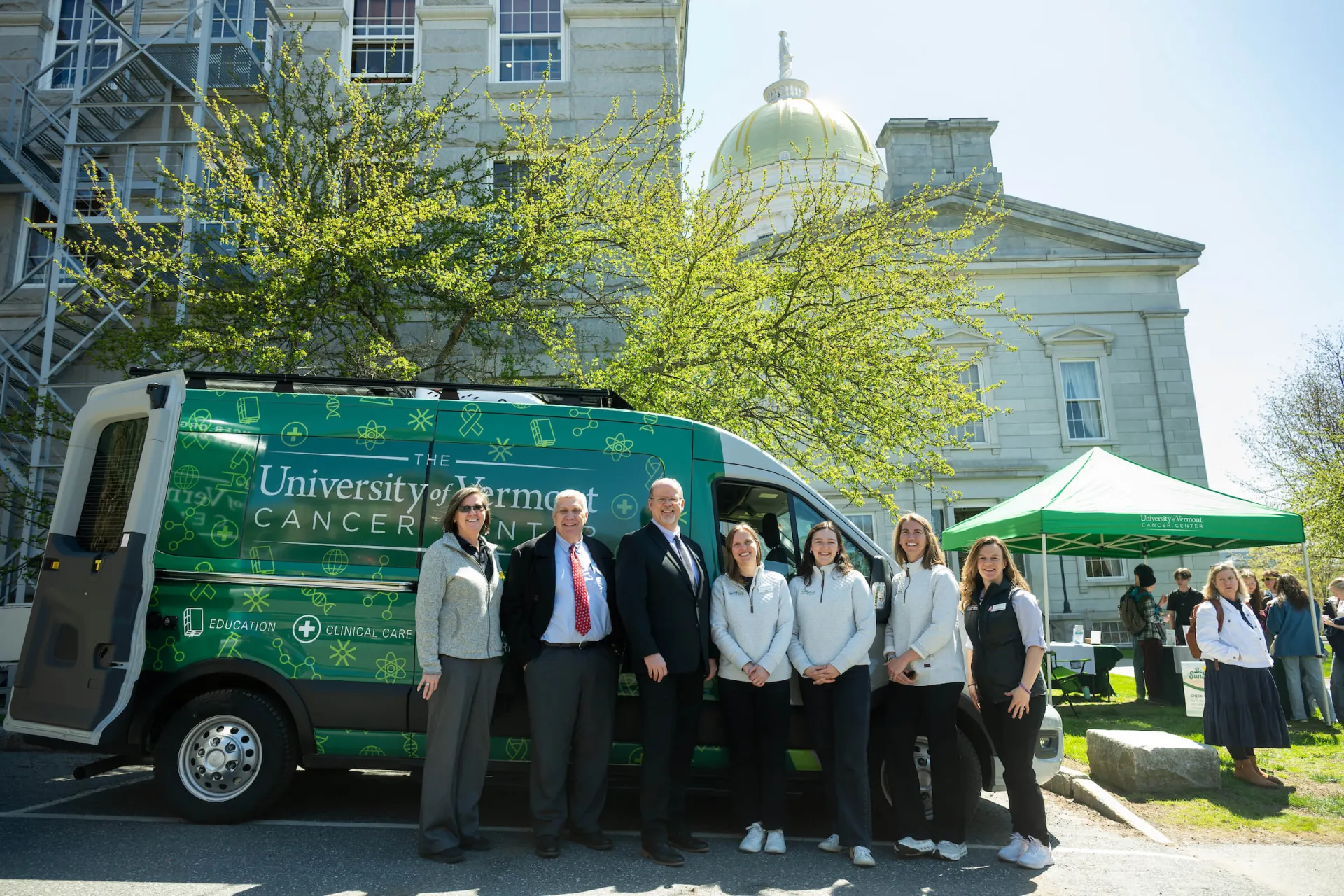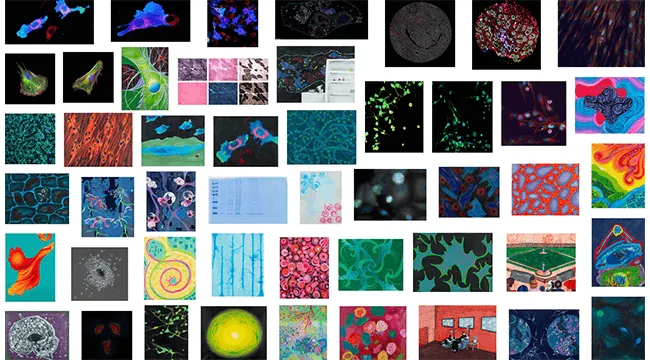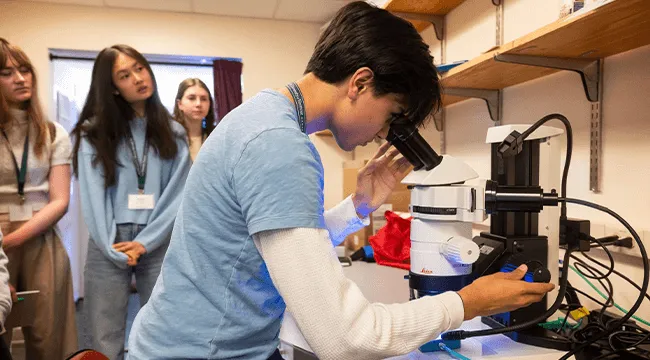At the Vermont State House in Montpelier, UVM Cancer Center (UVMCC) launched its new Outreach and Education Van, which will bring cancer initiatives—including screening, prevention, and education—to rural communities in Vermont and northern New York. Legislators and constituents stopped by to learn how this program, fueled by philanthropy, will address a national issue of particular concern to the Cancer Center.
"Although the rate of people dying from cancer has been decreasing for more than 30 years, rural cancer patients are up to 17% more likely to die from their disease,” says Randall Holcombe, M.D., M.B.A., UVMCC Director. “Additionally, Vermont is facing a shortage of oncologists who can provide innovative care close to home. Meeting the needs of these patients and ensuring better health outcomes now and in the future is a critical component of our mission as part of an academic medical center that offers world-class care close to home.”
Raising Awareness of Cancer Risk Factors, Screening Opportunities
Starting this spring, the van will show up at local sporting events, county fairs, and other community events in Vermont and northern New York to raise awareness about cancer risk, screening and prevention methods, and research. High on its summer agenda is skin cancer prevention in Vermont, which has one of the highest rates of melanoma in the U.S. To meet this need, the Van will educate communities about skin cancer prevention; distribute sunscreen and SPF ChapStick; and offer on-site skin cancer screening.
The van’s outreach component will also address other cancers like breast and lung—which have the highest incidence rate and highest mortality rate in the catchment area, respectively—by distributing educational materials about screenings for these diseases. To help people in rural communities better understand their risk profiles for cancer, the Cancer Center plans to send out clinicians to conduct genetic screenings in the future.
Expanding STEM Learning for Rural Students
In tandem with its outreach mission, the program is spearheading STEM learning opportunities for rural students, who, studies show, are less likely to form a ‘science identity’ and pursue careers in STEM.
In its first year of operation, the Cancer Center will bring the Van’s “lab-on-wheels"—complete with high-powered epifluorescence microscopes and other cancer research equipment—to rural high schools in Chester, Northfield, Brandon, Barre, and Hartford. With these tools, students will study cell biology, observe cancer drug-cell interactions, and partake in other activities relevant to modern cancer research. These studies are part of a curriculum developed in partnership with rural educators and in collaboration with Vermont Agency of Education.
The Cancer Center team will also coordinate professional development opportunities for rural educators as well as mentoring opportunities for students interested in STEM. “We are partnering with science educators and providing hands-on learning experiences for their students," says Katelyn Queen, Ph.D., Deputy Associate Director of Cancer Research, Training and Education at UVMCC. "Our hope is to seed an early interest in cancer science and inspire the next generation of oncologists in areas currently experiencing an oncology workforce shortage."


